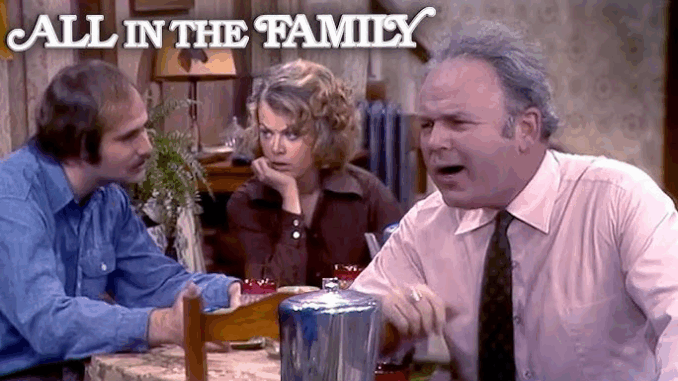
In the golden age of television, few shows managed to shake the foundations of American culture quite like All in the Family. Premiering in 1971 and running for nine groundbreaking seasons, the sitcom not only entertained millions but also held up a mirror to the social and political turbulence of its time. Over five decades later, its impact still reverberates through modern television.
At the heart of All in the Family was Archie Bunker, portrayed with raw brilliance by Carroll O’Connor. A working-class, conservative, and often bigoted patriarch, Archie was a character viewers loved, hated, and ultimately came to understand. His foil was son-in-law Mike Stivic (Rob Reiner), a liberal academic whose frequent clashes with Archie became the show’s signature dynamic. Meanwhile, Edith Bunker (Jean Stapleton) brought warmth and heart as the ever-patient wife and moral compass.
What set All in the Family apart wasn’t just its bold characters — it was its fearlessness in tackling taboo topics. Racism, sexism, homophobia, war, abortion, and economic disparity were all dissected in prime time, something virtually unheard of at the time. Creator Norman Lear dared to bring real-life issues into America’s living rooms, using humor not to soften the blow, but to make the medicine go down.
The show broke ratings records and won numerous Emmy Awards, but it also faced significant backlash. Some viewers misinterpreted Archie’s satire as endorsement, while others were simply uncomfortable confronting uncomfortable truths. Yet, that tension was exactly what made the series essential.
Beyond its own success, All in the Family gave rise to an entire universe of spin-offs, including Maude, The Jeffersons, and Good Times — each carrying forward Lear’s vision of socially conscious television. These series paved the way for generations of creators to use sitcoms as platforms for dialogue and change.
In retrospect, All in the Family wasn’t just a show — it was a cultural event. In an era when American households were divided by politics, class, and race, it dared to say the quiet parts out loud, proving that television could be both provocative and profoundly human.
As modern audiences rediscover the show through reruns and retrospectives, one thing remains clear: All in the Family didn’t just reflect America — it helped shape it.
